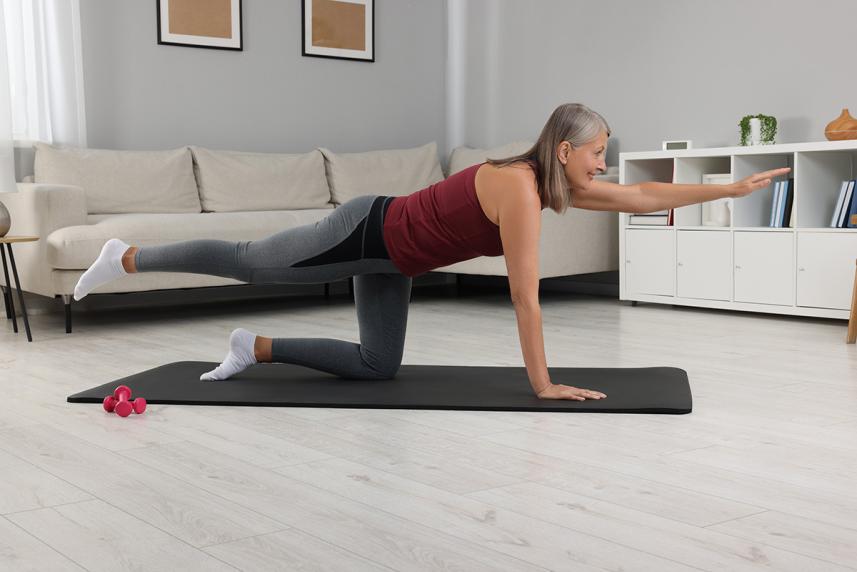Five ways to beat cold-weather joint pain
It’s not your imagination — joint pain gets worse in winter. Here’s how to find relief.

If you feel like you can predict cold weather based on how stiff or achy your joints are, you’re onto something. Experts aren’t entirely sure why the connection exists, but it’s real.
One theory is that low temperatures increase the thickness of joint fluid, which makes joints stiffer. Changes in barometric pressure may also cause muscles and tendons to expand and press on sensitive joints.
We don’t always do ourselves any favors, either. Skipping exercise when it’s cold out, skimping on water, and even indulging in a hot bowl of chili or other comfort food can all worsen joint pain.
Fortunately, you don’t have to spend your winter months feeling achy and miserable. Here are five ways to get some much-needed relief.
Layer up
Dressing in lightweight layers can help trap and keep warm air close to your joints. Also consider using neoprene or elastic sleeves on sore joints. Available at most pharmacies, these sleeves increase blood flow and tissue warmth.
Adjust your pain meds
Preventing the worsening of joint pain is more effective than active treatment once irritation sets in. Talk to your doctor about taking an over-the-counter medicine such as ibuprofen before cold fronts and winter storms move in. That can help reduce symptoms before they get out of control.
Eat well
Research suggests that a Mediterranean diet can reduce some of the inflammation of osteoarthritis and possibly even improve symptoms. It’s an eating style that’s rich in fruits, veggies, healthy fats like olive oil and nuts, whole grains, and fish.
Try a new activity
It’s normal to want to be less active when it’s cold. But this reduction in joint motion may lead to more stiffness, pain, and swelling. If you can’t bear to bundle up and go for a brisk walk outdoors, try moving your workout inside.
Talk to your doctor
If you still can’t find relief, talk to your primary care provider (PCP). They may refer you to an orthopedic specialist. This is a doctor who specializes in bones, joints, ligaments, tendons, and muscles. They can offer other solutions, such as a steroid shot, to relieve pain.


